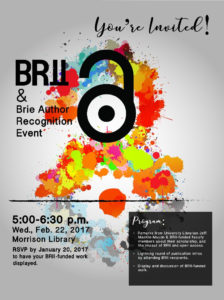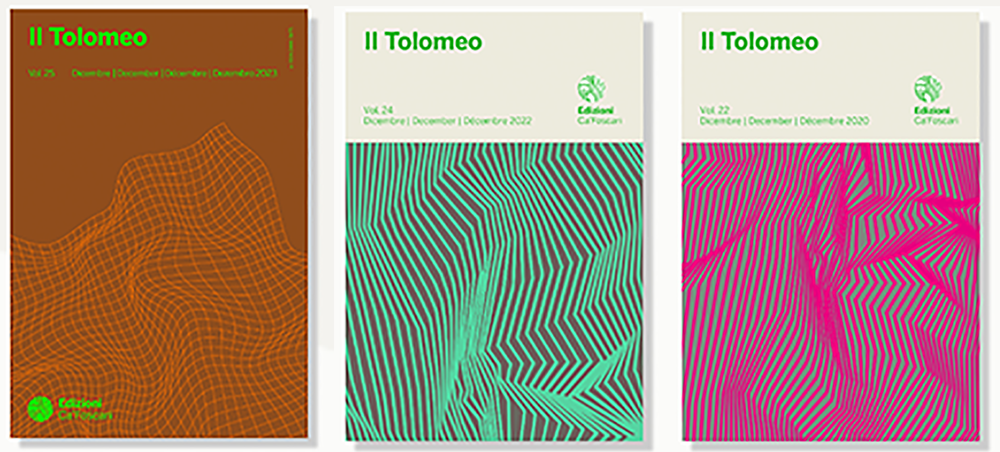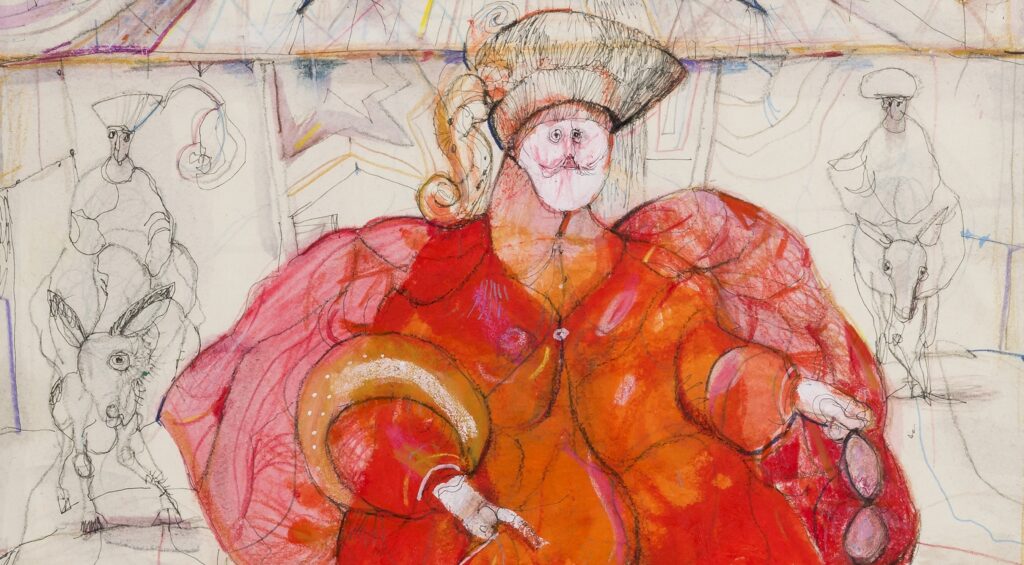Tag: Open Access Journals
Il Tolomeo: rivista di studi postcoloniali
Hard to imagine the UC Berkeley Library as one that may soon not be able to afford new journal subscriptions but for better for worse, that’s where we are heading with serials reduction projects such as the one we undertook last year. It’s a good thing thing the open access movement is still gaining traction. It’s also a good thing universities like the Ca’ Foscari University of Venice are boldly choosing to publish their journals and some of their books this way.
Il Tolomeo: rivista di studi postcoloniali first saw the light of day in 1995, thanks to the work of a group of postcolonial scholars at Ca’ Foscari. The journal publishes peer-reviewed articles, reviews, interviews, and previously unpublished original contributions in the fields of francophone, anglophone and lusophone literatures. It investigates the postcolonial literary phenomenon in all its manifestations, but is particularly interested in contributions which take a comparative, interdisciplinary approach: dialogues between literature and the arts, investigations of hybrid forms such as comic strips and cinema, research which links literary studies with the social sciences, or innovative approaches such as digital and environmental humanities.
For its next issue, Il Tolomeo invites all interested scholars to send their contributions for the upcoming 2024 issue (no. 26). The issue will be divided into a generalist section (on any theme) and a thematic section dedicated to asylum, refugees and postcolonial literatures. The deadline for submitting complete contributions is May 20, 2024.
AOQU (Achilles Orlando Quixote Ulysses). Rivista di epica
Ticontre: Teoria Testo Traduzione

In the spirit of Open Access Week worldwide, here’s an open access journal Ticontre: Theory Text Translation published at the Università degli studi di Trento provides a platform for open discussion on the literary text that is not only innovative but also keen to acknowledge core components of the European and American tradition.
With particular attention given to the work of emerging and early career scholars, Ticontre engages with medieval, modern and contemporary literature and with studies that deal with broad diachronic frames. As such, the journal also values investigations that engage with classical literatures within a grounded, progressive and reception-focused theoretical perspective.
Ticontre publishes contributions relating to all aspects of the European and American literary traditions. Given its operation within this critical space, the journal does not prioritize any specific national literary tradition. It promotes dialog rather than divisions, and highlights similarities rather than differences in literary traditions. novelist, poet, short story writer, translator and literary critic.
The current issue is dedicated to Italian writer, translator and literary critic Cesare Pavese (1908-1950) and edited by Giancarlo Alfano, Carlo Tirinanzi De Medici, and Massimiliano Tortora with essays by Marina Bianchi, Sofia Pellegrin, Giuseppe Alvino, Alessandro Amenta, Giuliano Rossi, Thea Rimini, and Luca Cortesi.

Boost Your Scholarly Publishing Skills During Open Access Week, Oct. 23-27

Open Access connects your scholarship to the world, and helps you gain global readership. For the week of Oct. 23-27, the UC Berkeley Library is highlighting these connections.
You can attend five exciting workshops and panels that bridge real-world scholarly publishing skills with the connectedness that open access offers.
What’s Open Access?
Open Access (OA) is the free, immediate, online availability of scholarship. Often, OA scholarship is also free of accompanying copyright or licensing reuse restrictions, promoting further innovation. OA removes barriers between readers and scholarly publications—connecting readers to information, and scholars to emerging scholarship and other authors with whom they can collaborate, or whose work they can test, innovate with, and expand upon.
Open Access Week @ UC Berkeley
OA Week 2017 is a global effort to bring attention to the connections that OA makes possible. At UC Berkeley, the University Library—with participation from partners like the Graduate Division, California Digital Library, Center for Teaching & Learning and more—has put together engaging programming demonstrating OA’s connections in action. We hope to see you at the events, where you can continue to build your scholarly publishing skills.
Schedule
Refreshments provided at all events, and attendance enters you into raffle for prizes! To find out more about each event, please visit our Scholarly Communication Events page.
Monday, Oct. 23
Copyright and Your Dissertation
1-2:30 p.m. | 309 Sproul Hall
Register http://bit.ly/1023copyright
From the beginning of the writing process to submitting and publishing your dissertation or thesis, we will walk you through a useful workflow for addressing copyright and other legal considerations.
Tuesday, Oct. 24
First Books & Publishing Your Dissertation
2-3:30 p.m. | 309 Sproul Hall
Register http://bit.ly/1024publishing
Hear from expert panelists about what happens once you submit your dissertation, how to shape your dissertation’s impact, and how to go about publishing your first book.
Wednesday, Oct. 25
Increasing and Monitoring Scholarly Impact
10-11:30 a.m. | 309 Sproul Hall
Register http://bit.ly/1025impact
Discover strategies and tips for preparing and promoting your scholarship, and the best ways to monitor and increase your citations and success. You’ll also learn how to: understand metrics, select and use scholarly networking tools, choose reputable open access journals and publishing options, and participate in open access article and book funding opportunities.
Thursday, Oct. 26
Understanding the (Changing) Realm of Peer Review
1-2:30 p.m. | 309 Sproul Hall
Register http://bit.ly/1026understandpeer
Are you publishing an article or reviewing someone else’s work? Panelists demystify the peer review process, what’s expected of you and what you’ll experience, and how the world of peer review is evolving with new models that foster transparency and impact.
Friday, Oct. 27
Making Textbooks and Course Readers Affordable
11 a.m.-12:30 p.m. | Wurster Hall, Environmental Design Library
Register http://bit.ly/1027ACC
Do you wonder how to make your assigned readings more affordable, and how much time and effort you’d need to invest? The University Library and Center for Teaching and Learning have partnered in an innovative pilot program to reduce course content expenses and incentivize the creation of high quality, free, and open course materials. In this panel event, you’ll hear from participating faculty and lecturers who will discuss their experiences and provide practical tips from the leading edge of course content affordability.
We hope to see you there!
Questions? E-mail schol-comm@berkeley.edu, or check out our Scholarly Communication Services website.
UC Berkeley Open Access Authors: We’re Celebrating You!

Join faculty, students, and colleagues for wine and cheese as the UC Berkeley community recognizes and discusses UCB open access papers at the BRII & Brie Author Recognition Event (open to all) being held in Morrison Library on Feb. 22, 2017 from 5:00-6:30 p.m.
We’re Celebrating Because You’ve Published For Impact
You’re over the moon because your new paper has just been accepted to a high-impact journal that is published open access—free, digital, and available to anyone online. You chose this journal because open access (OA) publishing can promote increased readership by lowering access barriers, and can spur innovation through fewer restrictions on use.
But suddenly you’re faced with a quandary: There’s a steep fee to make all this happen—an “article processing charge” (APC), typically somewhere between $650-$3,500, that authors are asked to provide to publishers for OA publication in lieu of typical print-subscription fees paid for by libraries. You want people to read and cite your scholarship, and you hope to advance knowledge by enabling maximal use of your scholarly output. But how can you finance and participate in this new scholarly publishing landscape?
One option is to deposit a copy of the article you submitted into a repository, in keeping with the UC system’s OA policy. (For more on the OA policy, see the UCOP Office of Scholarly Communication’s helpful guide.) To that end, UC scholars and staff can deposit pre-print copies of their publications in eScholarship (the repository created by California Digital Library), or can choose a discipline-specific repository like arXiv or the new Humanities Commons.
Depositing preprints and making them available at no cost to the public in this fashion can have remarkable impacts for building knowledge and augmenting your academic reputation. Yet, there is still one other parameter of an APC-based OA publishing system that remains to be addressed: covering the APC, itself. What can you do when an esteemed open access journal like BMC Biology asks you to provide $2,785 to publish your accepted paper in their online journal? Maybe you have grant funds to cover this APC, but maybe you don’t, and maybe you don’t have a grant at all.
What’s The Solution?
UC Berkeley’s Library can help, and we’re about to start celebrating that. The Berkeley Research Impact Initiative (BRII) makes APC funding available to UC Berkeley authors (current faculty members, post-docs, students, researchers) and publishers (campus Centers, Organized Research Units, and Departments) to make your publications free to all readers immediately upon publication—thereby also helping to increase the impact of your scholarship.
Started in 2008, BRII has provided around $400,000 of funding for several hundred articles and publications across numerous discipline areas. In a 2016 paper, authors Teplitzky and Phillips reported that 89% of responding BRII recipients agreed that the availability of BRII to help pay the APC or open access fee for their article affected their decision about where to publish, and 44% had not published an open access article prior to the one funded by BRII. Most respondents (82%) believed their article had a greater impact overall because it was OA.
Let’s Celebrate UC Berkeley Scholarship!
So, it’s high time to recognize the scholarship of BRII-funded authors, and raise awareness about available BRII funding. That’s exactly what the Library will be doing with the BRII & Brie Author Recognition Event (open to all) being held in Morrison Library on Feb. 22, 2017 from 5:00-6:30 p.m.
You can hear remarks from University Librarian Jeff MacKie-Mason and BRII-funded faculty members about their scholarship, and the impact of BRII and open access. There will also be a lightning round of paper discussions by attending BRII recipients, so you can learn more about the OA scholarship being created here at UC Berkeley. BRII-funded works will also be displayed, so if you already are a BRII recipient, please RSVP by January 20 to have your work shown at the event.
We hope you’ll join us to celebrate your colleagues in an evening of learning and author recognition. If you know little about OA or BRII, but aspire to publish, please join us to find out more about this important funding program. RSVP here!
OpenEdition’s Fremium Program
Through next fall, the Library will have access to an extended trial to one of the most innovative research publishing models coming from Europe. Through a combination of open access (OA) and fee-based subscriptions, OpenEdition Freemium offers an infrastructure for electronic publishing dedicated to academic communication across the humanities and social sciences. OpenEdition is the umbrella portal for OpenEdition Books, Revues.org, Hypotheses and Calenda–four platforms dedicated to electronic resources in the humanities and social sciences. While most of the content is in French and freely available through OpenEdition, an institutional subscription would allow Berkeley to participate in an acquisitions policy that both supports sustainable development of OA and that respects the needs of teaching, research and learning communities: no DRM or download quotas are applied. Other advantages of an institutional subscription is that it would seamlessly integrate all OpenEdition ebooks and journals into our catalogs and bibliographic search tools while also benefitting from a full range of digital formats, some optimized specifically for e-readers, tablets, and smart phones. With the current database trial, UCB affiliates can access html, ePub, and PDF formats for 120 freemium journals and 140+ open access journals in Revues.org in html. For OpenEdition Books, 64 ebooks and 57 OA ebooks also currently available in the same three formats.
OpenEdition is run by the Centre for Open Electronic Publishing (Cléo), a unit that brings together the Centre National de la Recherche Scientifique (CNRS), the Université d’Aix-Marseille, the École des Hautes Études en Sciences Sociales (EHESS) and the Université d’Avignon et des Pays de Vaucluse.
Set the Default to Open Access
From Paris to Buenos Aires, open access (OA) is changing the way scholars communicate. It is removing price and permission barriers and opening up the content of books and journals, which have become increasingly more difficult for academic libraries to acquire as collection budgets decline and subscription costs skyrocket. Here at Berkeley, faculty and students have been using eScholarship to publish their own peer-reviewed journals like California Italian Studies Journal, L2 Journal, Lucero, and nineteen sixty nine for the world to read, free of charge.
Next week is the 6th International OA Week which promotes open access as a new norm in scholarship and research. On Tuesday, October 23, the Library will sponsor a faculty conversation on scholarly communication with associate professor Richard Schneider who led the effort to pass and implement the landmark open access policy at UCSF last May. This was a significant breakthrough for UC but also for the United States, making UCSF the largest scientific institution and the first public university to adopt an open access policy:
Open Access at UC: Maximizing the Reach, Visibility and Impact of Your Research
Richard Schneider moderated by Molly Van Houweling (Berkeley Law)
Tuesday, October 23
3:30-5:00pm
Education/Psychology Library, Tolman Hall
Do you have an article you want to publish? Are you trying to decide where to place it? Throughout the week, librarians will offer three different workshops on the importance of retaining your rights as an author:
Publish Smart, Maximize Impact – OA Week workshops
Social Sciences
Wednesday, October 24
3:30 – 5:00pm
251 Doe Library
Sciences
Thursday, October 25
11:00am – 12:30pm
Engineering Library
Arts, Humanities and Area Studies
Thursday, October 25
3:30 – 5:00pm
251 Doe Library
Students, researchers, faculty and the public are invited to attend.
Come early to the workshops and get a free t-shirt! (a limited number of open access t-shirts will be distributed)
Happy OA Week, Galicia 21

As Open Access Week comes to a close, it provides the opportunity to mention a few OA journals in the Romance languages that have recently been added to UC’s shared discovery tools like Melvyl and the E-journal Titles A-Z list. There’s Galicia 21: Journal of Contemporary Galician Studies – a refereed electronic journal co-sponsored by the Centre for Galician Studies in Wales (Bangor University) and Cardiff University, Catalan Historical Review – the international journal of the History and Archaeology Section of the Institut d’Estudis Catalans (IEC), Estudios de sociolingüística: linguas, sociedades e culturas from Vigo, Spain, Italique – a Swiss journal for the study of Italian Renaissance poetry, Flaubert: revue critique et génétique, the Cahiers de narratologie, and many many more. Open Access is transforming models of publishing and bringing scholarly content to our desktops in ways traditional print and subscription-based publications cannot.
Le projet Persee
Revues.org
is a portal to over 100 online journals in the humanities and social sciences.
Like Persée and other open access projects in France, the site provides full-text to a broad range of scholarly titles such as Annales historiques de la Révolution française, Cahiers de recherches médiévales, Les Cahiers d’Outre-Mer, COnTEXTES: Revue de sociologie de la littérature, Recherches linguistiques de Vincennes, Revue d’histoire du XIXe siècle, and more. Developed and maintained by the Centre pour l’édition électronique ouverte (CLEO) in Marseille, founding partners include CNRS, EHESS, Université de Provence and the Université d’Avignon.




